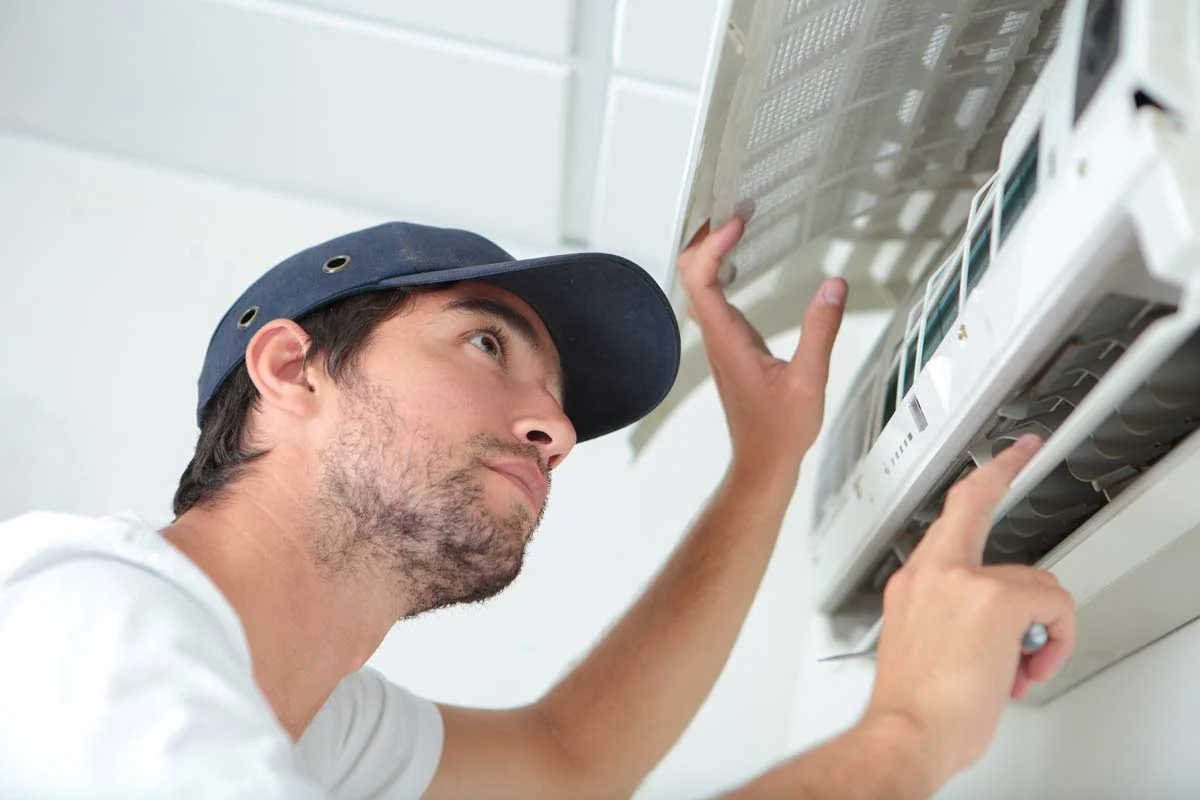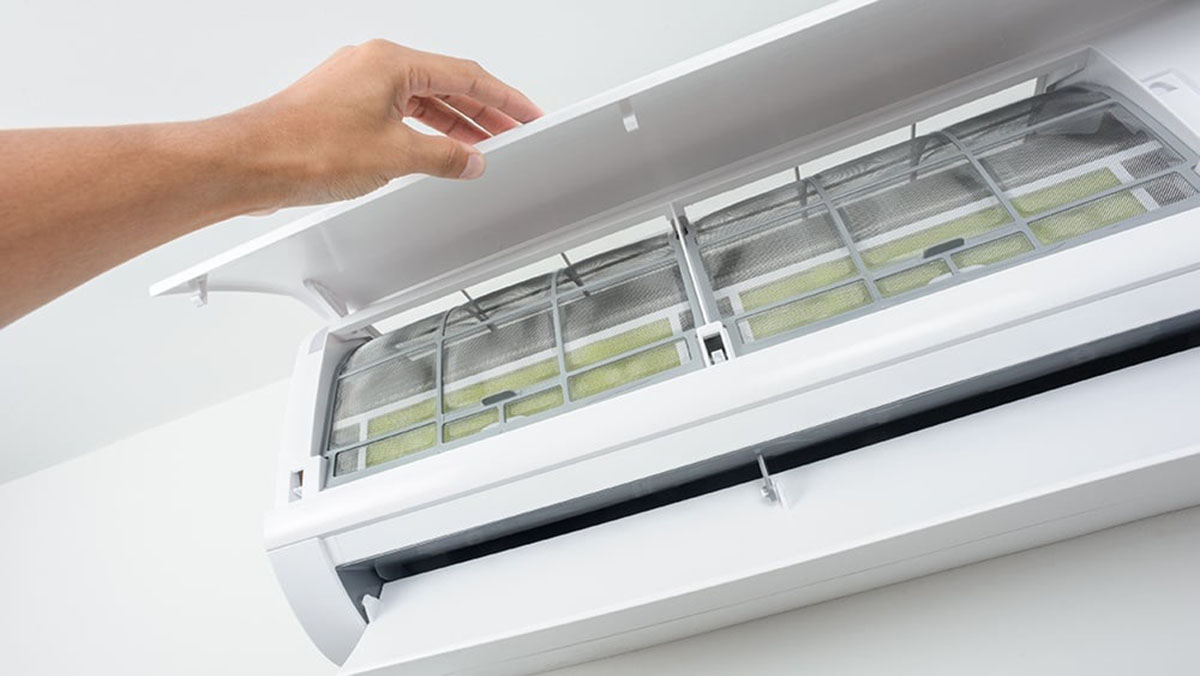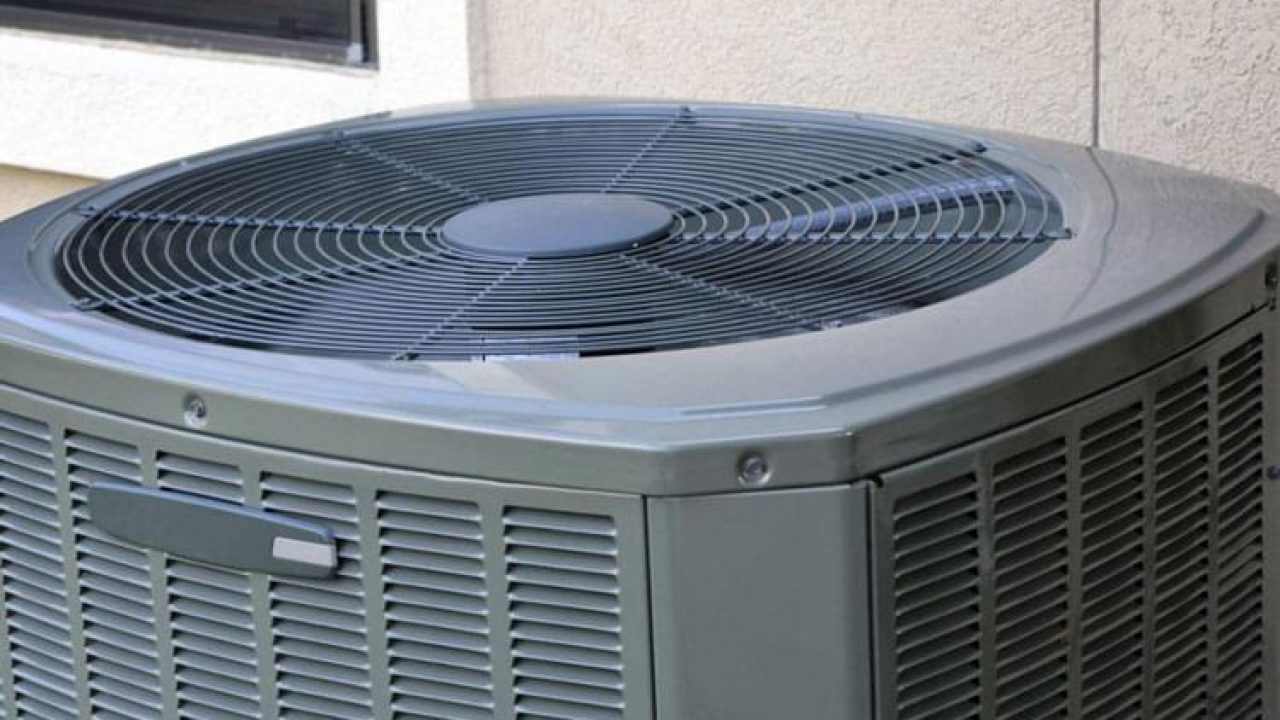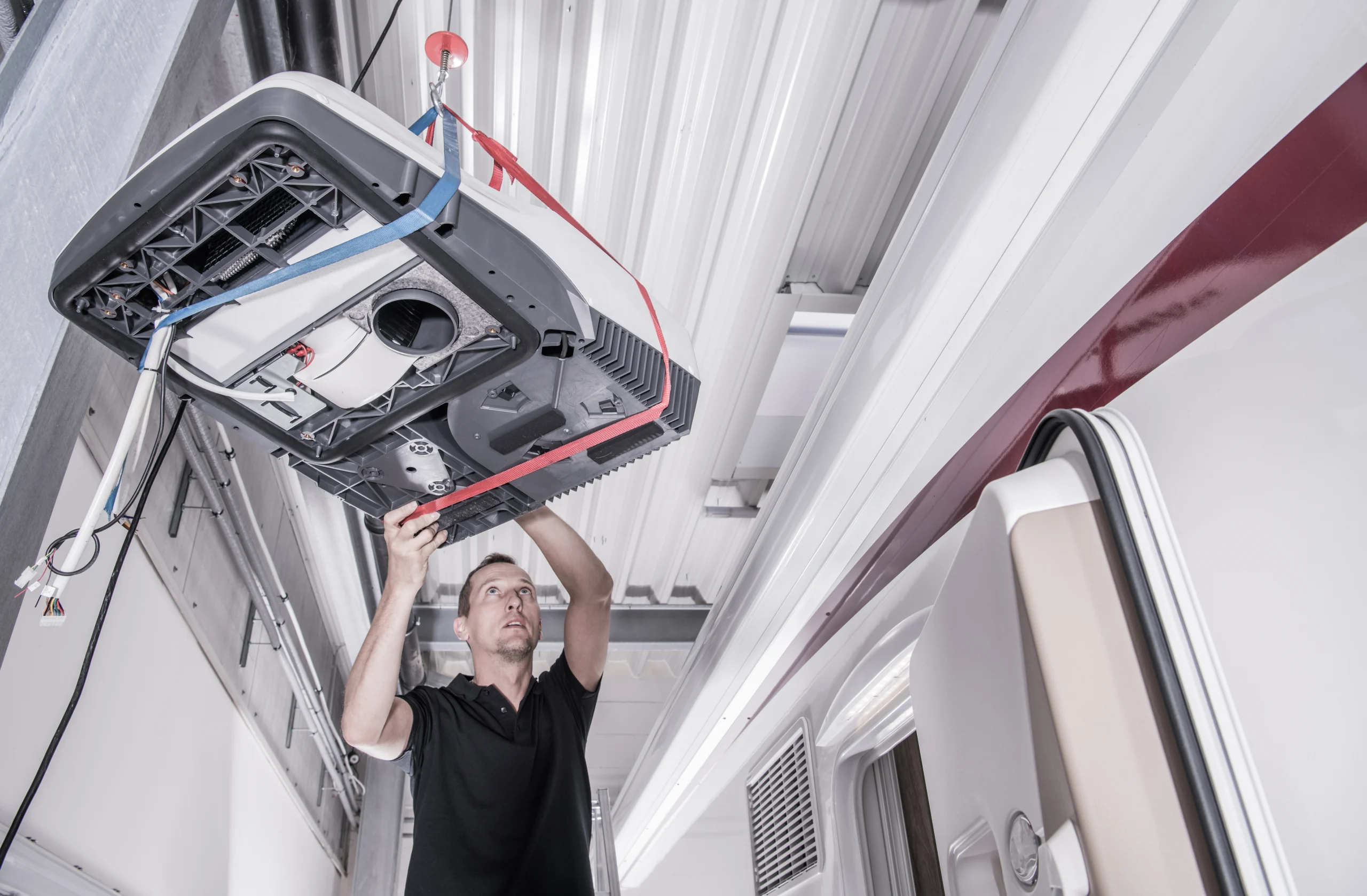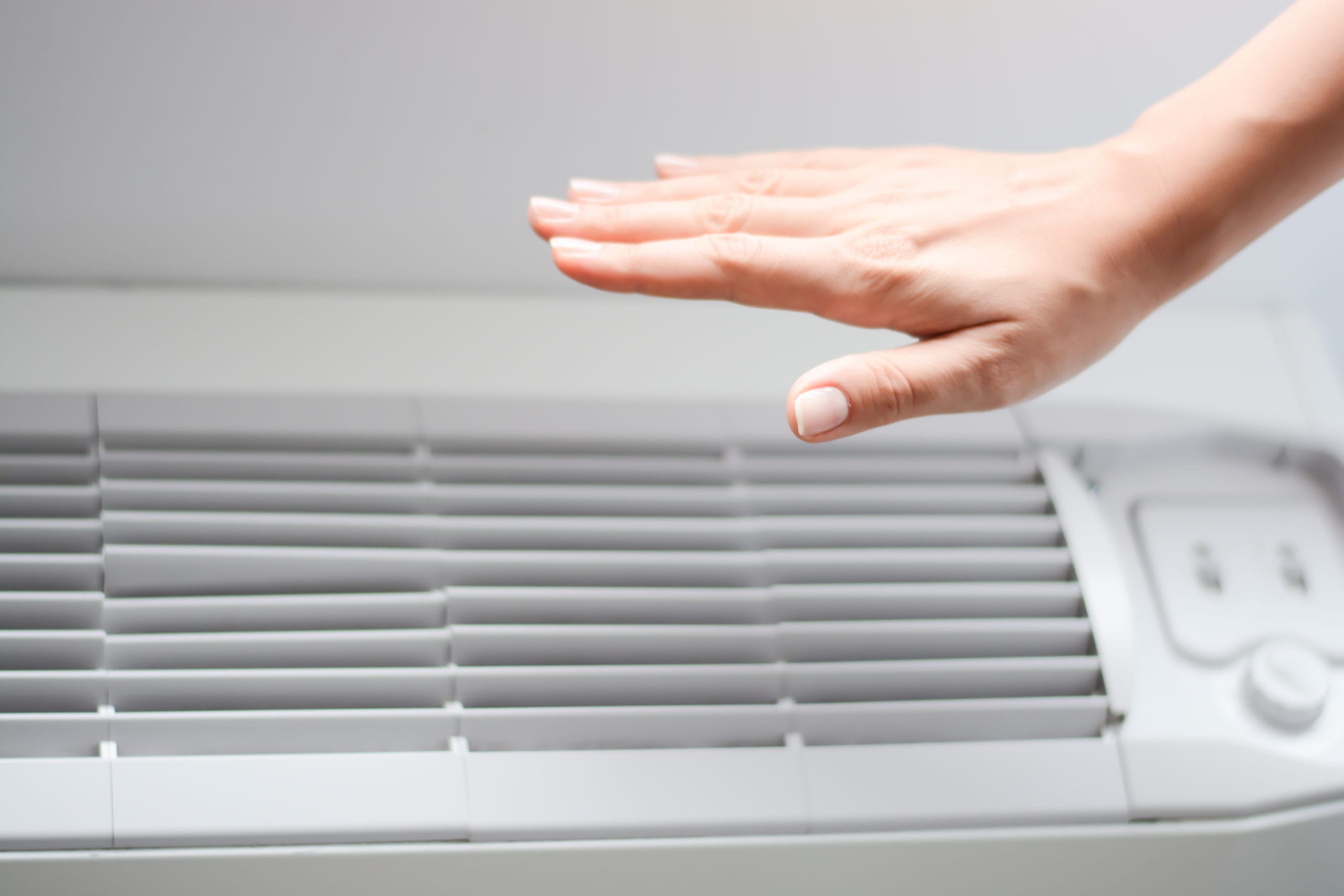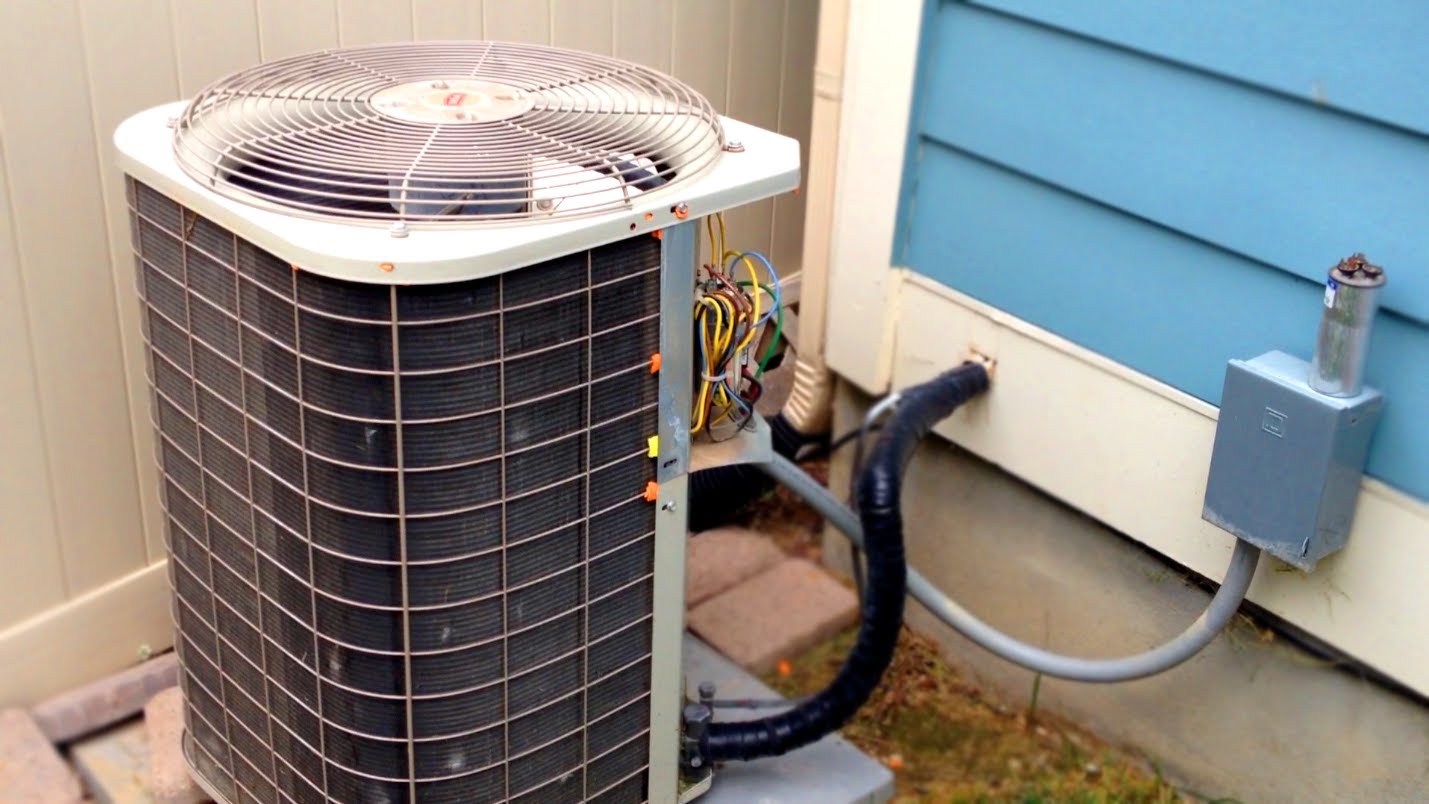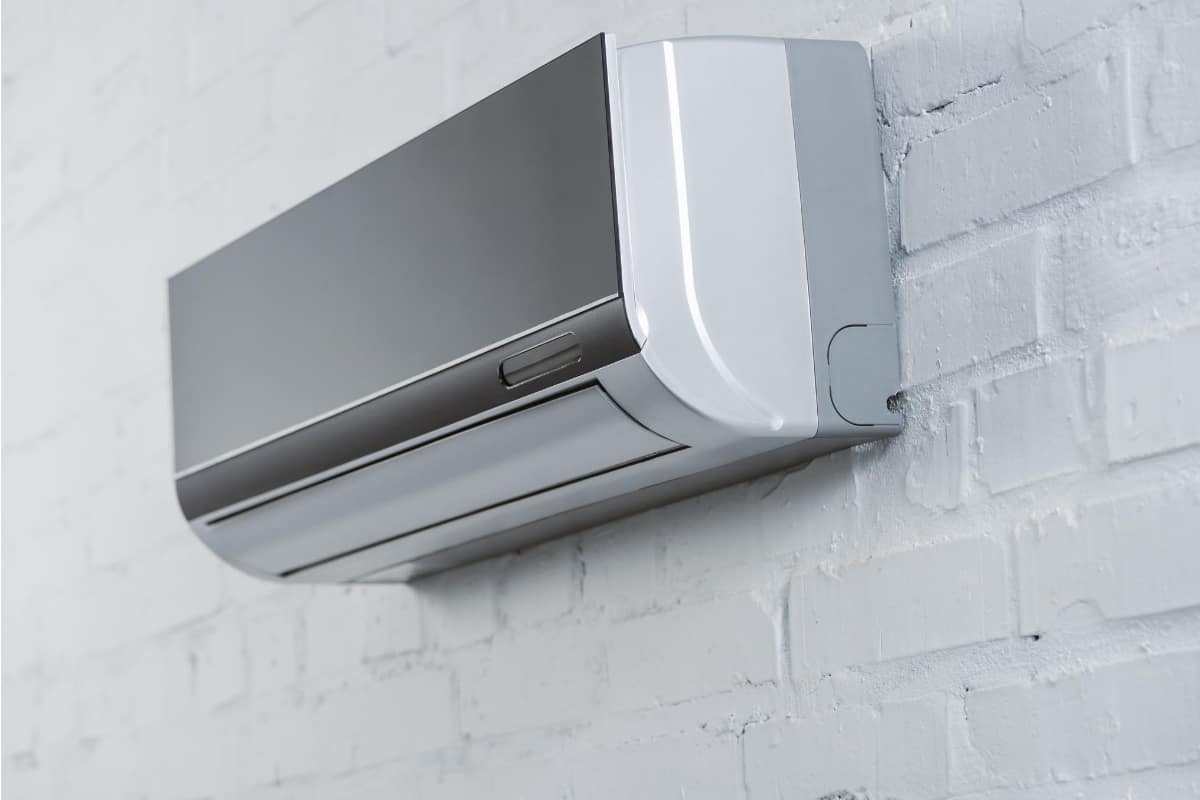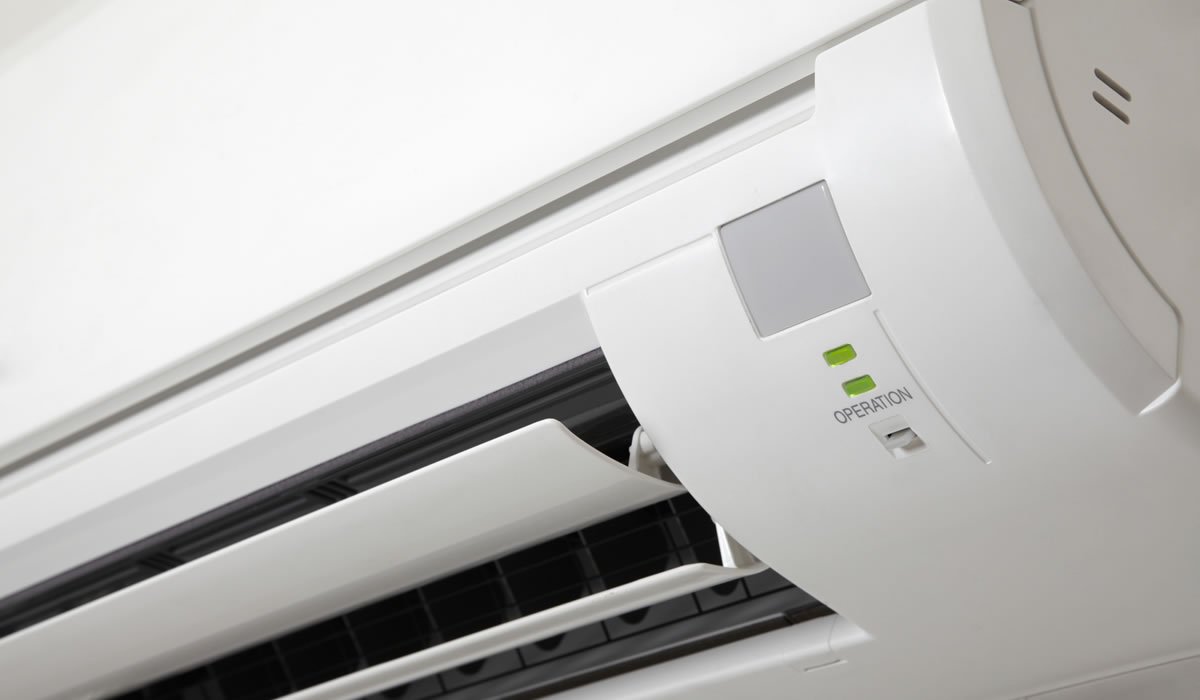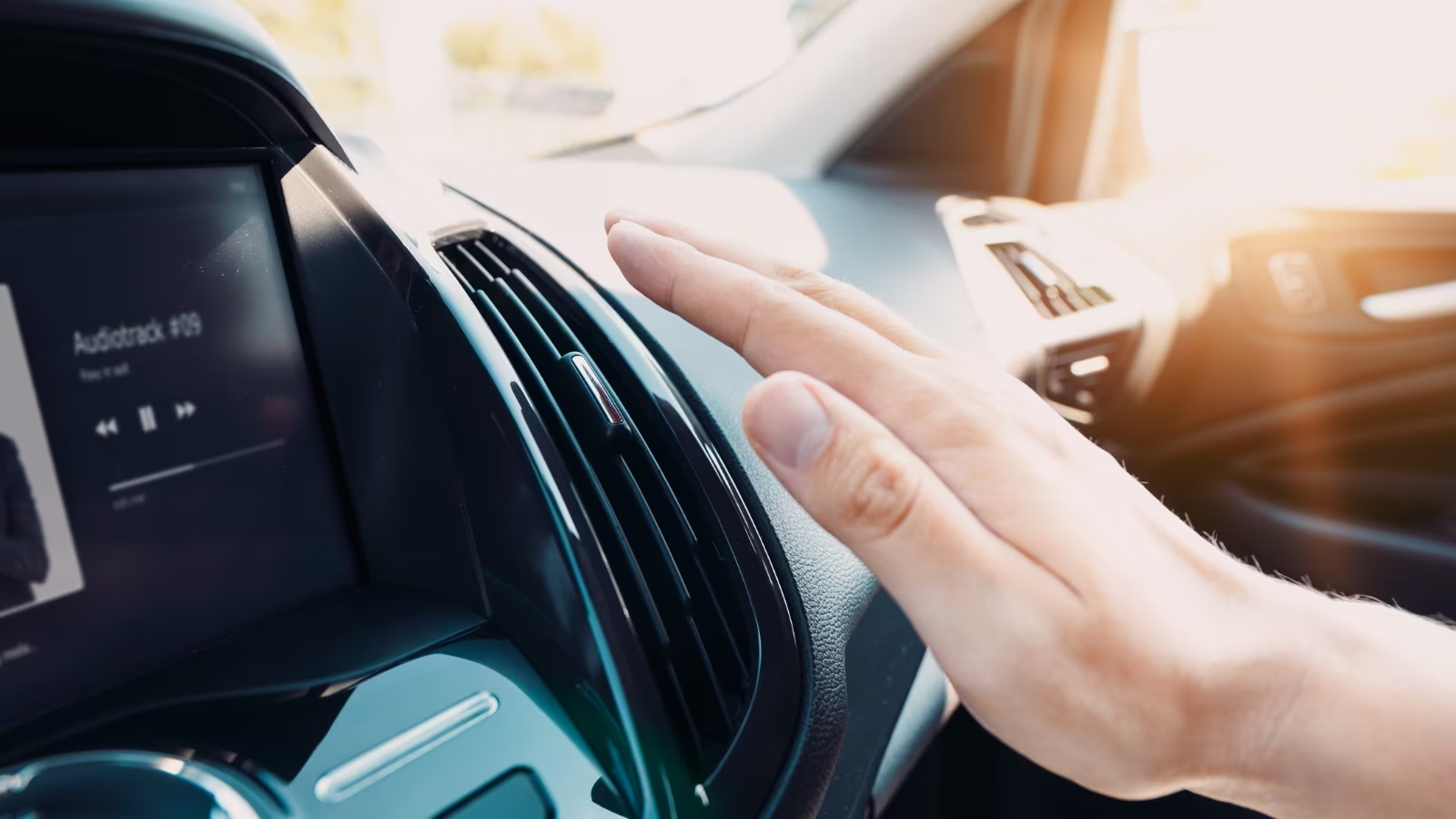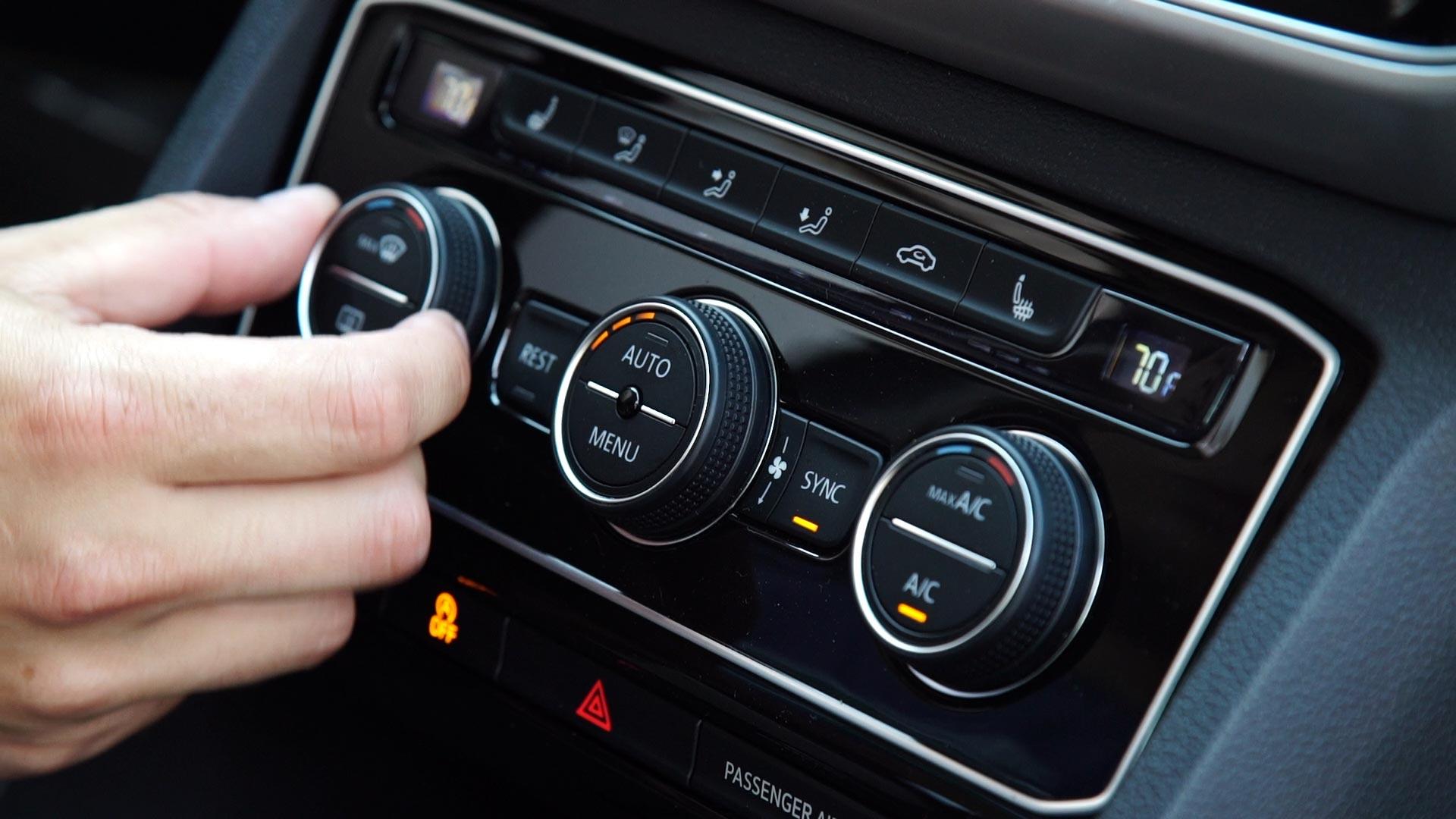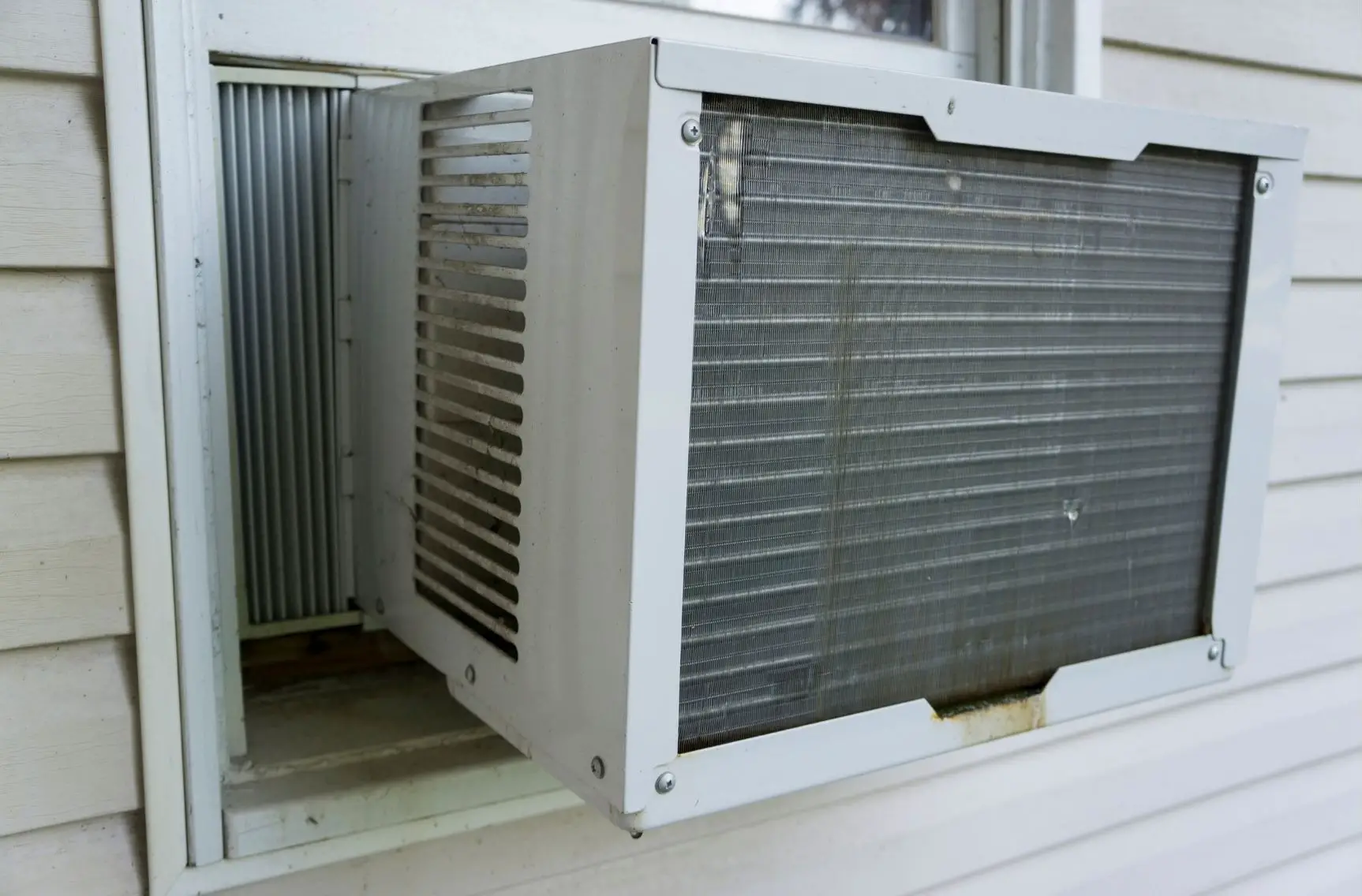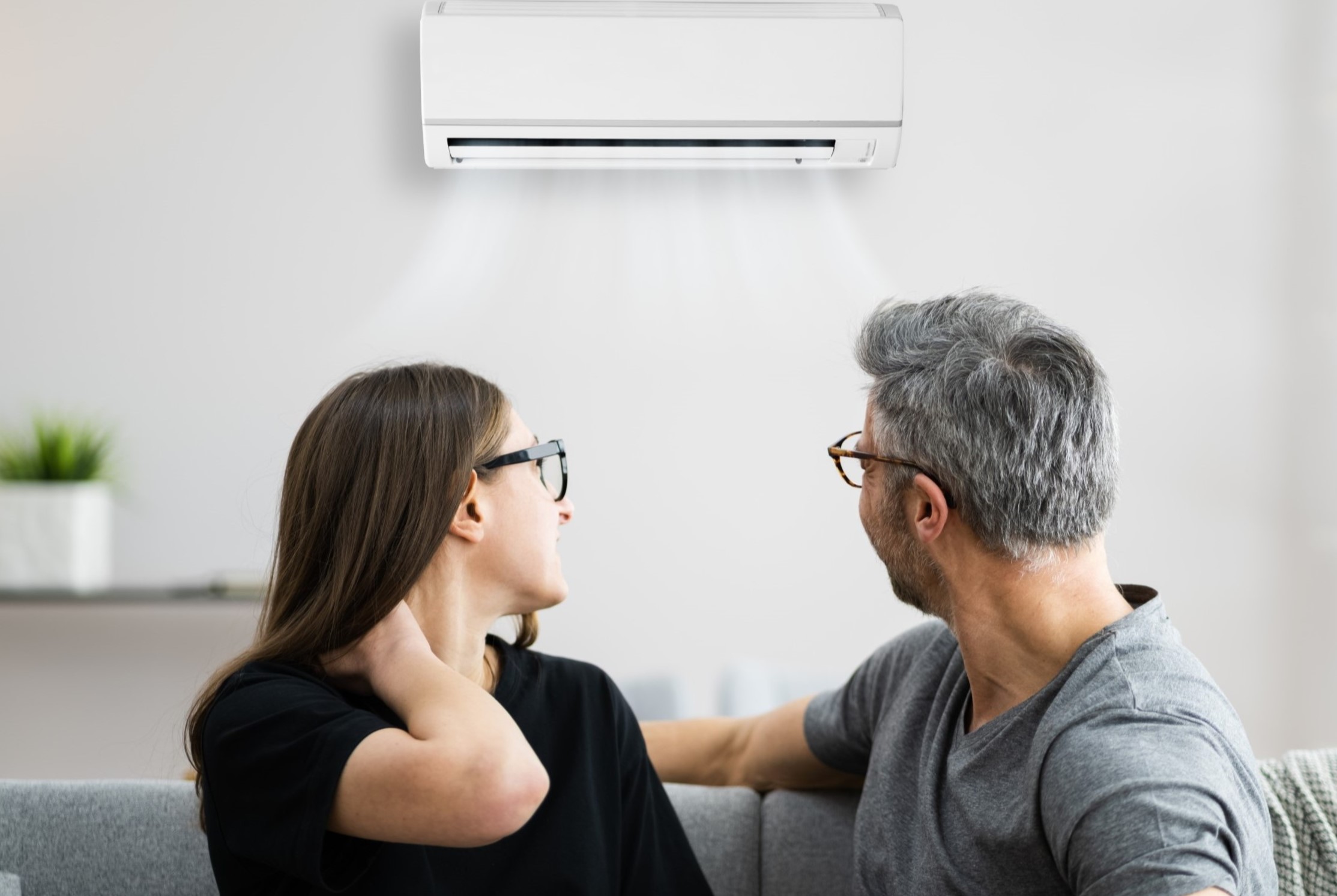Home>Home Maintenance>Why Is My Air Conditioner Hissing
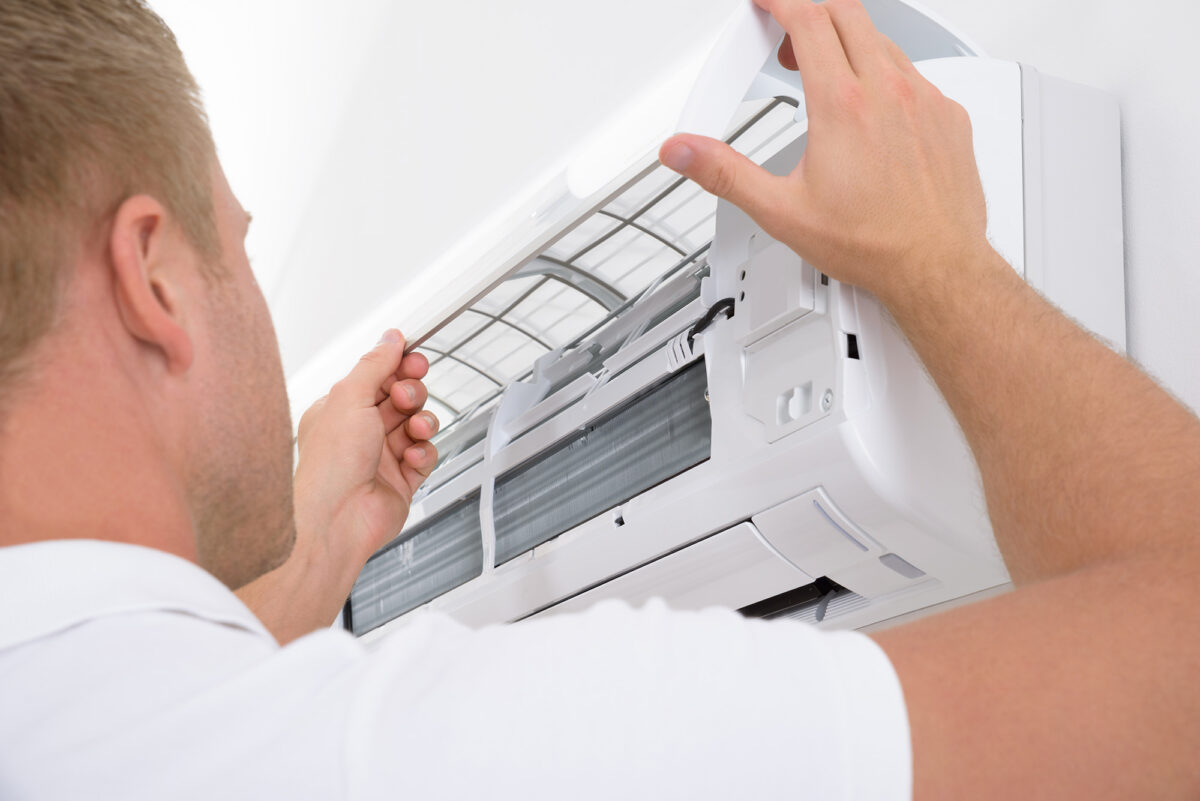

Home Maintenance
Why Is My Air Conditioner Hissing
Modified: August 28, 2024
Discover why your air conditioner is hissing and learn how to fix it with our expert home maintenance tips. Keep your home cool and comfortable all summer long.
(Many of the links in this article redirect to a specific reviewed product. Your purchase of these products through affiliate links helps to generate commission for Storables.com, at no extra cost. Learn more)
Introduction
As the mercury rises and the sweltering heat of summer sets in, there’s nothing quite as comforting as the cool air flowing from your air conditioner. But what if that soothing hum is interrupted by an unsettling hissing noise? If you find yourself wondering why your air conditioner is hissing, you’re not alone.
While it’s natural for air conditioners to produce some noise during operation, a hissing sound can indicate a potential issue that requires attention. Understanding the common causes of hissing noises in air conditioners is essential to diagnose and resolve the problem effectively. In this article, we will explore the various reasons why your air conditioner might be hissing and provide troubleshooting solutions to help you get your cooling system back to its optimum performance.
So, let’s dive in and unravel the mystery behind that bothersome hissing sound coming from your air conditioner.
Key Takeaways:
- Don’t ignore hissing noises from your air conditioner. Schedule professional inspection and repair to address potential issues like refrigerant leaks, dirty filters, and obstructions for a quiet and efficient cooling system.
- Regularly replace air filters, clean condenser coils, check for duct leaks, and remove obstructions to prevent hissing noises in your air conditioner. Proper maintenance ensures a quiet and reliable cooling system.
Read more: Why Is My Toilet Hissing
Common Causes of Hissing Noises in Air Conditioners
When it comes to hissing sounds in air conditioners, there are several common culprits that could be causing the disturbance. Let’s take a closer look at these potential causes:
- Refrigerant Leak: One of the main reasons for a hissing sound in an air conditioner is a refrigerant leak. Refrigerant is responsible for cooling the air in the system, and if there’s a leak, it can create a hissing noise as the refrigerant escapes. If you suspect a refrigerant leak, it’s crucial to address it promptly to prevent further damage and ensure the system’s efficient functioning.
- Expansion Valve Issues: The expansion valve regulates the flow of refrigerant in the system. If the valve is malfunctioning or damaged, it can cause a hissing noise as the refrigerant passes through it. Proper inspection and repair of the expansion valve are necessary to resolve this issue.
- Dirty Air Filters: Air filters play a vital role in maintaining the quality of air circulated by the air conditioner. When filters become clogged with dirt, dust, and debris, it can restrict the airflow and cause the system to work harder, leading to hissing noises. Regularly replacing or cleaning the air filters can prevent this problem and help the system operate smoothly.
- Problems with the Compressor: The compressor is the heart of an air conditioning system. If there are issues with the compressor, such as a faulty valve, excessive pressure, or a refrigerant leak, it can result in a hissing sound. Professional inspection and repair may be required to fix compressor-related problems.
- Faulty Fan Motor: A malfunctioning fan motor can also lead to hissing noises in an air conditioner. If the motor isn’t working correctly or the fan blades are damaged, it can create a hissing or buzzing sound. Repairing or replacing the fan motor is typically necessary to resolve this issue.
- Ductwork Issues: Faulty or improperly installed ductwork can cause air leaks, leading to hissing sounds. When air escapes through gaps or cracks in the ducts, it can create a noticeable hissing noise. Sealing and insulating the ducts can help eliminate air leaks and reduce the noise.
- Debris or Obstructions in the Unit: Over time, debris, leaves, or other foreign objects can find their way into the air conditioning unit, causing obstructions. These obstructions can disrupt the normal airflow and result in hissing noises. Regularly inspecting and cleaning the unit can prevent such issues.
Identifying the specific cause of the hissing noise in your air conditioner requires careful observation and sometimes professional assistance. Once you have determined the underlying problem, you can take appropriate steps to resolve it and restore your air conditioner’s smooth and quiet operation.
Refrigerant Leak
A refrigerant leak is one of the most common causes of hissing noises in air conditioners. Refrigerant plays a crucial role in the cooling process by absorbing heat from the indoor air and carrying it outside. When there’s a leak in the refrigerant lines, it allows the refrigerant to escape, resulting in the characteristic hissing sound.
There are several reasons why a refrigerant leak may occur. It could be due to aging and deterioration of the refrigerant lines, poor installation, or damage caused by external factors such as corrosion or physical impact. Regardless of the cause, it’s important to address a refrigerant leak promptly, as it not only affects the performance of your air conditioner but can also pose environmental risks.
If you suspect a refrigerant leak in your air conditioner, there are a few signs to look out for. Apart from the hissing noise, you may notice that your air conditioner is not cooling as effectively as before, or it’s taking longer to reach the desired temperature. You might also see oil stains or wet spots near the refrigerant lines or evaporator coil.
Resolving a refrigerant leak requires professional assistance. An HVAC technician will need to locate the source of the leak, repair or replace the damaged section of the refrigerant line, and recharge the system with the appropriate amount of refrigerant. It’s important to note that simply adding more refrigerant without fixing the leak is not a permanent solution and can lead to further damage.
Regular maintenance and annual inspections by a qualified technician can help prevent refrigerant leaks by detecting early signs of corrosion or wear in the refrigerant lines. By addressing any issues promptly, you can ensure the long-term performance and efficiency of your air conditioning system.
Expansion Valve Issues
The expansion valve in an air conditioner is responsible for regulating the flow of refrigerant into the evaporator coil. It controls the amount of refrigerant that enters the coil, allowing it to expand and absorb heat from the indoor air.
When the expansion valve is malfunctioning or damaged, it can cause hissing noises in the air conditioner. This is typically due to a restriction in the flow of refrigerant, causing it to pass through the valve with increased pressure. The high-pressure release of the refrigerant can create a noticeable hissing sound.
There are a few reasons why expansion valve issues may arise. Over time, the valve can become clogged with debris or mineral deposits, hindering the proper flow of refrigerant. Additionally, corrosion or damage to the valve can affect its performance. Poor maintenance practices or improper installation can also contribute to expansion valve problems.
If you suspect that the expansion valve is causing the hissing noise in your air conditioner, it’s best to consult a professional HVAC technician. They will be able to accurately diagnose the issue and determine whether the valve needs cleaning, repair, or replacement.
Cleaning the expansion valve involves removing any debris or buildup that may be obstructing the flow of refrigerant. In some cases, the valve may require lubrication or adjustment to restore its proper functionality. However, if the valve is severely damaged or corroded, it may need to be replaced altogether.
Addressing expansion valve issues promptly is essential not only to eliminate the hissing noise but also to ensure the optimal performance and efficiency of your air conditioner. Regular maintenance, including cleaning or replacing filters, can help prevent debris from reaching the expansion valve and causing problems.
Remember, when it comes to expansion valve issues, it’s best to rely on the expertise of a qualified HVAC technician to accurately diagnose and resolve the problem. They will ensure that the expansion valve is functioning as it should, allowing your air conditioner to cool your home efficiently and quietly.
Dirty Air Filters
Air filters are an essential component of any air conditioning system. They are designed to trap dust, dirt, pollen, and other airborne particles, ensuring clean and healthy air circulation in your home. However, over time, these filters can become clogged with debris, reducing their effectiveness and causing several issues, including hissing noises.
When air filters are dirty and clogged, they restrict the airflow in the system. As a result, the air conditioner has to work harder to push air through the blocked filter, leading to increased pressure and the creation of a hissing sound. This noise is usually more audible when the system kicks on or during periods of higher demand.
Regularly replacing or cleaning your air filters is crucial to prevent this problem. The frequency of filter maintenance depends on various factors, such as the type of filter, the number of household occupants, and the presence of pets or allergies. As a general rule, it’s recommended to check the filters at least once a month and replace them every three to six months, or more frequently if needed.
When inspecting the air filters, ensure they are free from dirt, dust, and debris. If they appear dirty or clogged, follow the manufacturer’s instructions to clean or replace them. Cleaning methods typically involve rinsing the filters with water or using a vacuum cleaner to remove the accumulated debris. However, some filters may require replacement if they are non-washable or severely damaged.
Keeping your air filters clean not only helps eliminate the hissing noise but also improves the overall efficiency and performance of your air conditioner. It enhances the airflow, prevents strain on the system’s components, and reduces energy consumption, resulting in lower utility bills.
Additionally, clean air filters contribute to better indoor air quality by preventing the recirculation of dust and allergens. This is especially important for individuals with respiratory issues or allergies.
Remember to consult your air conditioner’s manual or seek professional guidance if you are unsure about the proper maintenance or replacement of your filters. Following the manufacturer’s guidelines and keeping a regular filter maintenance schedule will ensure that your air conditioning system operates smoothly and quietly, providing you with maximum comfort.
Read more: Why Is My Air Conditioner Surging
Problems with the Compressor
The compressor is the heart of an air conditioning system. It is responsible for pressurizing the refrigerant and circulating it through the system to facilitate the cooling process. When the compressor encounters issues, it can result in hissing noises in the air conditioner.
There are several potential problems with the compressor that can lead to the creation of the hissing sound. If the compressor valves are faulty or damaged, they may not properly regulate the flow of refrigerant, causing it to pass through with increased pressure and resulting in the hissing noise. Excessive pressure in the compressor can also be due to a refrigerant leak or a malfunctioning pressure relief valve.
Additionally, a damaged or worn-out compressor can cause internal components to rub against each other, generating a hissing sound. This can occur when there is poor lubrication, a misaligned motor, or loose parts within the compressor unit.
If you suspect problems with the compressor in your air conditioner, it’s essential to seek professional assistance. Repairing or replacing the compressor is a complex task that requires specialized knowledge and tools. Attempting to fix compressor issues without the necessary expertise can result in further damage and may even pose safety risks.
An HVAC technician will conduct a thorough inspection to diagnose the specific problem with the compressor. Depending on the issue, they may need to repair or replace the valve, lubricate the internal components, or address any other malfunctioning parts. In some cases, if the compressor is severely damaged or beyond repair, it may be necessary to replace the entire unit.
Regular maintenance of your air conditioning system, including checking the compressor’s condition, can help detect any potential issues before they escalate. This typically involves inspecting the compressor for signs of wear or damage, ensuring proper lubrication, and cleaning any debris or obstructions around the unit.
By addressing compressor problems promptly and relying on professional expertise, you can eliminate the hissing noise in your air conditioner and ensure the smooth and efficient operation of your cooling system.
Faulty Fan Motor
A faulty fan motor is another potential cause of hissing noises in an air conditioner. The fan motor plays a critical role in circulating air through the system, ensuring proper airflow and cooling. When the fan motor malfunctions or the fan blades become damaged, it can result in a hissing or buzzing sound.
There are a few reasons why the fan motor may develop issues. Over time, the motor bearings can wear out, causing the fan to rotate unevenly or produce excessive noise. Additionally, dirt and debris can accumulate on the fan blades, leading to imbalances and creating a hissing sound as they spin.
If you suspect that the fan motor is causing the hissing noise in your air conditioner, it’s advisable to enlist the help of a professional HVAC technician. They will be able to inspect the fan motor and determine the best course of action for repair or replacement.
Repairing a faulty fan motor generally involves lubricating the bearings, realigning the motor, or replacing damaged fan blades. In some cases, if the motor is severely damaged or beyond repair, it may be necessary to install a new fan motor.
To prevent fan motor issues and associated hissing noises, regular maintenance is key. This includes checking and cleaning the fan blades to remove any accumulated dirt or debris that may cause imbalances. Lubricating the motor bearings as recommended by the manufacturer can also help extend the lifespan of the fan motor.
Additionally, it’s important to ensure that the air conditioner is installed properly, as improper installation can lead to fan motor problems. This includes ensuring correct motor alignment, secure mounting, and proper electrical connections.
By addressing faulty fan motor issues, either through repair or replacement, you can eliminate the hissing noise in your air conditioner and restore its quiet and efficient operation. Remember to consult a professional HVAC technician for accurate diagnosis and expert assistance in resolving fan motor-related problems.
Ductwork Issues
The ductwork in your home plays a crucial role in delivering cool air from your air conditioner to different rooms. However, ductwork issues can contribute to hissing noises in your air conditioning system.
Faulty or improperly installed ductwork can develop leaks or gaps, allowing air to escape. When air escapes through these openings, it creates a hissing sound as the airflow is disrupted. This can lead to decreased efficiency and compromised cooling performance.
Some common causes of ductwork issues include poor installation, aging ducts, or physical damage caused by pests or building renovations. Over time, the constant expansion and contraction of ducts due to temperature changes can also contribute to duct leakage.
To determine if ductwork issues are the cause of the hissing noise, you can perform a visual inspection of the ducts. Pay attention to any visible cracks, gaps, or loose connections. Additionally, you may notice uneven cooling in your home or areas that are difficult to cool, which can also indicate ductwork problems.
Resolving ductwork issues typically requires professional assistance. An HVAC technician can conduct a thorough inspection, identify the areas of leakage, and recommend appropriate measures for repair or sealing.
One common method for sealing ductwork is using mastic or metallic tape to cover the gaps or cracks. In some cases, more extensive repairs or replacement of damaged sections may be necessary.
To prevent ductwork issues in the first place, it’s important to ensure proper installation by qualified professionals. Regular maintenance, including cleaning the ducts and replacing air filters, can also help prevent the accumulation of debris that can lead to blockages and leaks.
By addressing ductwork issues and sealing any air leaks, you can not only eliminate the hissing noise in your air conditioner but also improve the overall efficiency and effectiveness of your cooling system. This will help ensure that cool air is evenly distributed throughout your home, keeping you comfortable during those hot summer months.
If your air conditioner is hissing, it could be a sign of a refrigerant leak. Turn off the unit and call a professional to inspect and repair it.
Debris or Obstructions in the Unit
Debris or obstructions within the air conditioning unit itself can cause hissing noises and disrupt the normal operation of the system. Over time, leaves, dirt, and other foreign objects can find their way into the unit, hindering proper airflow and causing the air conditioner to work harder.
When debris or obstructions are present, it can create turbulent airflow and result in a hissing or rattling sound as air tries to pass through the blocked areas. This noise can be particularly noticeable when the system is running at higher speeds.
Regularly inspecting and cleaning the air conditioning unit is essential to prevent debris-related issues. Before performing any maintenance on the unit, be sure to turn off the power to avoid any accidents.
Start by visually inspecting the exterior of the unit for any visible obstructions. Remove any loose debris, such as leaves or twigs, from the surrounding area. Then, gently remove the unit’s outer cover and check the interior for any buildup of dirt or debris. Use a soft brush or vacuum cleaner with a brush attachment to remove the accumulated debris.
In addition to cleaning the visible parts of the unit, it’s also important to check and clean the condenser coils. Over time, dust and dirt can accumulate on the coils, reducing their efficiency and hindering proper heat transfer. Use a soft brush or a coil cleaning solution to remove any debris from the coils, taking care not to damage the fragile fins.
Removing obstructions in the unit not only helps eliminate the hissing noise but also enhances the airflow and improves your air conditioner’s efficiency. It can also help prevent other potential problems such as overheating or compressor damage.
Regular maintenance, including cleaning the unit and keeping the surrounding area clear of debris, will go a long way in ensuring the smooth and reliable operation of your air conditioning system.
Remember, if you’re unsure about performing any maintenance or cleaning tasks on your air conditioning unit, it’s best to consult a professional HVAC technician. They have the expertise and knowledge to ensure proper maintenance and resolve any issues effectively.
Read more: Why Is There Ice On My Air Conditioner
Troubleshooting and Solutions for Hissing Air Conditioners
Experiencing hissing noises in your air conditioner can be unsettling, but there are several troubleshooting steps and solutions you can try to address the issue. Here are some steps you can take to troubleshoot and resolve the problem:
- Schedule Professional Inspection and Repair: If you notice a hissing noise coming from your air conditioner, it’s best to contact a professional HVAC technician. They have the expertise and knowledge to accurately diagnose the problem and provide the necessary repairs or replacements.
- Regularly Replace Air Filters: Dirty air filters can restrict airflow and cause your air conditioner to work harder, leading to hissing noises. Therefore, it’s crucial to regularly replace or clean the air filters as recommended by the manufacturer.
- Clean the Condenser Coils: Dust and debris can accumulate on the condenser coils over time, affecting the performance of your air conditioner. Cleaning the coils with a soft brush or using a coil cleaning solution can improve airflow and prevent hissing noises caused by restricted air movement.
- Check for Duct Leaks: Inspect the ductwork for any visible signs of leaks or gaps. Sealing these openings with mastic or metallic tape can help prevent air leaks and reduce hissing noises in your air conditioner.
- Remove Obstructions in the Unit: Clean the exterior and interior of your air conditioning unit, removing any debris or obstructions that may hinder proper airflow. This can help alleviate hissing noises caused by turbulent airflow.
It’s important to note that while these troubleshooting steps may help resolve minor issues, it’s always recommended to consult a professional HVAC technician for an accurate diagnosis and proper repairs.
Remember to schedule regular maintenance for your air conditioning system. Annual inspections by a qualified technician can help detect and prevent potential issues before they escalate, ensuring the smooth and quiet operation of your air conditioner.
By addressing the underlying causes of hissing noises in your air conditioner, you can restore its efficient performance and enjoy a comfortable and quiet indoor environment.
Schedule Professional Inspection and Repair
If you’re experiencing hissing noises in your air conditioner, it’s crucial to schedule a professional inspection and repair. While there are troubleshooting steps you can take on your own, a qualified HVAC technician has the expertise and knowledge to accurately diagnose the problem and provide the necessary solutions.
When you schedule a professional inspection, the HVAC technician will thoroughly assess your air conditioning system. They will carefully listen for the hissing noise and employ diagnostic tools to pinpoint the exact cause. This process may involve checking components such as the refrigerant lines, expansion valve, compressor, fan motor, and ductwork.
Once the technician identifies the underlying issue, they will recommend the appropriate repair or replacement. This could involve repairing refrigerant leaks, replacing faulty components, lubricating motor bearings, or sealing ductwork leaks. The technician will also ensure that all repairs are done according to industry standards, and safety protocols are followed.
It’s crucial to rely on professional expertise when it comes to diagnosing and repairing your air conditioner. Attempting to fix complex issues without the necessary knowledge and tools can lead to further damage and potential safety hazards.
By scheduling a professional inspection and repair, you can address the root cause of the hissing noise and restore your air conditioner’s optimal performance. This not only eliminates the noise but also ensures the longevity and efficiency of your cooling system.
Additionally, regular maintenance appointments with a professional technician are highly recommended. Annual inspections can catch minor issues and prevent them from escalating into major problems. This proactive approach can save you time, money, and significant inconvenience in the long run.
Remember, when it comes to your air conditioning system, it’s always best to leave the inspection and repair to qualified professionals. Their expertise and experience will ensure that your system operates quietly and efficiently, providing you with a cool and comfortable indoor environment.
Regularly Replace Air Filters
One of the simplest yet most important steps to prevent hissing noises in your air conditioner is to regularly replace the air filters. Air filters play a crucial role in maintaining the air quality in your home and the efficiency of your cooling system.
Over time, air filters can become clogged with dust, dirt, pet dander, and other particles. When the filters are dirty, they restrict the airflow, causing your air conditioner to work harder to push air through the blockage. This increased strain on the system can result in hissing noises.
It’s recommended to check your air filters on a monthly basis and replace them every three to six months, depending on the manufacturer’s instructions and the level of contaminants in your home. However, certain factors such as pets, allergies, or the presence of smokers may require more frequent filter changes.
When replacing the air filters, follow the manufacturer’s recommendations for the appropriate filter size and type. It’s important to choose high-quality filters that are designed to capture a wide range of airborne particles while still allowing for proper airflow. Pleated filters are often a popular choice as they offer efficient filtration and longer lifespan.
Regularly replacing the air filters has several benefits beyond eliminating hissing noises. It improves the air quality in your home, reducing the presence of allergens and pollutants. This is especially important for individuals with respiratory conditions or allergies.
In addition, clean air filters contribute to the overall efficiency and longevity of your air conditioner. Unobstructed airflow allows the system to cool your home more effectively while using less energy. This not only helps reduce energy costs but also minimizes wear and tear on the system components, potentially extending its lifespan.
Remember to mark your calendar or set a reminder to check and replace your air filters regularly. This simple maintenance task goes a long way in maintaining a quiet, efficient, and healthy air conditioning system.
Clean the Condenser Coils
Cleaning the condenser coils is an essential step in maintaining your air conditioner and preventing hissing noises. The condenser coils are located in the outdoor unit and play a crucial role in releasing heat from your home’s air.
Over time, the condenser coils can become dirty and covered in dust, dirt, pollen, and other debris. When this happens, the airflow is restricted, and the efficiency of your air conditioner is reduced. This can result in increased pressure within the system and lead to hissing noises.
To clean the condenser coils, start by turning off the power to the unit. This ensures your safety while working on the air conditioner. Then, remove any debris from the surrounding area, such as leaves, grass, or twigs that may be blocking the airflow.
Next, locate the condenser coils, typically behind a protective grate or panel. Gently brush off any loose debris using a soft brush or a vacuum cleaner with a brush attachment. Be careful not to bend or damage the delicate fins on the coils.
If there is stubborn dirt or grime on the coils, you can use a coil cleaning solution specifically designed for air conditioners. Follow the manufacturer’s instructions for dilution and application, and use a soft brush to gently scrub away the dirt. Rinse the coils thoroughly with water to remove any cleaning residue.
Cleaning the condenser coils not only helps eliminate hissing noises but also improves the overall efficiency of your air conditioner. When the coils are clean and free of debris, they can effectively release heat from your home’s air, allowing the system to cool your space more effectively and reducing the strain on the compressor.
We recommend performing this maintenance task at least once a year or more frequently if you live in a dusty or high-pollen area. Regular cleaning of the condenser coils ensures optimal performance and can extend the lifespan of your air conditioning unit.
Remember to consult the manufacturer’s guidelines and safety precautions when cleaning the condenser coils. If you’re unsure or uncomfortable performing this task, it’s always best to seek the assistance of a professional HVAC technician.
Read more: Why Is My Air Conditioner Not Turning On
Check for Duct Leaks
Checking for duct leaks is an important step in preventing hissing noises in your air conditioner. Leaky ducts can disrupt the airflow, reduce the system’s efficiency, and potentially lead to hissing or whistling sounds.
Duct leaks can occur due to various factors, including poor installation, aging ductwork, or physical damage caused by pests or renovations. When there are leaks in the ductwork, cool air can escape into unconditioned spaces, resulting in inefficient cooling and the need for your air conditioner to work harder.
To check for duct leaks, start by visually inspecting the accessible sections of the ductwork. Look for any visible gaps, cracks, or loose connections. Pay close attention to areas such as joints, corners, and seams.
You can also perform a simple test to detect duct leaks by using the “smoke test” method. Turn on your air conditioner, and then hold a thin strip of tissue paper or a smoke pen near the suspected areas. If the tissue paper moves or the smoke is pulled into gaps or cracks, it indicates a potential leak.
Once you’ve identified the areas of potential leaks, it’s important to seal them properly to prevent conditioned air from escaping. Use mastic sealant, metallic tape, or aerosol sealants designed for ductwork to seal the gaps or cracks. Avoid using duct tape, as it tends to deteriorate over time.
For larger or more severe leaks, you may need to call a professional HVAC technician. They can use specialized equipment such as smoke generators or a duct blower to detect and repair leaks that may be hidden in inaccessible sections of the ductwork.
Checking for and sealing duct leaks not only helps eliminate hissing noises but also improves the overall efficiency of your air conditioner. It ensures that the cool air produced by your system reaches its intended destinations and maintains a comfortable indoor environment.
Regular maintenance and inspection of your ductwork are essential to prevent leaks from occurring. Additionally, properly insulated and sealed ductwork helps conserve energy and reduce your utility bills.
If you’re uncertain about performing the test and sealing duct leaks on your own, don’t hesitate to reach out to a professional HVAC technician. They have the expertise and tools to efficiently locate and address any duct leakage issues.
Remove Obstructions in the Unit
If you’re dealing with hissing noises in your air conditioner, it’s important to check for any obstructions that may be causing turbulent airflow. Over time, debris, leaves, and other foreign objects can find their way into the unit, hindering the proper operation of your air conditioner.
To address this issue, start by turning off the power to the unit for safety. Then, visually inspect the exterior of the unit, paying attention to any visible obstructions. Remove any loose debris, such as leaves, grass, or twigs, from the surrounding area. It’s important to keep the area around the unit clear to ensure proper airflow.
Next, gently remove the outer cover or grille of the unit to access the interior components. Take a careful look inside and check for any accumulated debris or obstructions. It’s common for dirt, dust, and even small animals to find their way into the unit, causing airflow restrictions and resulting in hissing noises.
Use a soft brush or a vacuum cleaner with a brush attachment to clean the interior of the unit. Carefully remove any debris that may have accumulated on the fan blades, condenser coils, or other components. Be mindful to avoid bending or damaging any delicate fins or components.
In addition to cleaning, it’s important to check for and remove any obstructions in the airflow path. Look for objects such as sticks, toys, or other foreign items that may be blocking the flow of air. These obstructions hinder the airflow, leading to turbulent movement and the creation of hissing sounds.
Removing obstructions in the unit not only eliminates the hissing noise but also allows for smooth and efficient airflow. Proper airflow is crucial for your air conditioner to function optimally and provide effective cooling.
Regular maintenance is key to prevent obstructions from occurring. It’s recommended to inspect and clean the unit at least once a year, ideally before the start of the cooling season. This helps ensure that your air conditioner operates quietly and efficiently throughout the summer months.
If you’re unsure about performing any maintenance tasks or if you encounter complex obstructions within the unit, it’s best to seek the assistance of a professional HVAC technician. They have the expertise and tools necessary to safely and effectively remove any obstructions and restore proper airflow.
Conclusion
Experiencing hissing noises in your air conditioner can be a cause for concern, but with the right knowledge and troubleshooting steps, you can address the issue effectively. By understanding the common causes of hissing noises and implementing the appropriate solutions, you can restore your air conditioner to its optimal performance.
In this article, we explored various potential causes of hissing noises in air conditioners, including refrigerant leaks, expansion valve issues, dirty air filters, problems with the compressor, faulty fan motors, ductwork issues, and obstructions within the unit. Each of these issues requires specific attention and professional assistance, if needed, to resolve the problem effectively.
By scheduling professional inspection and repair, you can rely on the expertise of HVAC technicians to accurately diagnose and resolve the underlying issues. Regularly replacing air filters ensures proper airflow and prevents hissing noises caused by restricted air movement. Cleaning the condenser coils enhances the efficiency of the air conditioner and reduces the strain on the system. Checking for duct leaks and sealing them prevents air leaks, ensuring efficient airflow throughout your home. Removing obstructions in the unit allows for smooth and uninterrupted airflow, eliminating hissing noises caused by turbulent movement.
Regular maintenance, including cleaning, inspection, and professional servicing, is crucial for preventing and addressing these issues. It’s important to follow manufacturer guidelines, schedule professional maintenance appointments, and address any issues promptly to ensure your air conditioner operates quietly and reliably.
In conclusion, if your air conditioner is hissing, it’s essential to take action rather than ignoring the problem. By understanding the common causes, troubleshooting the issues, and seeking professional assistance when necessary, you can enjoy a quiet, efficient, and comfortable cooling system.
Remember, when in doubt or if you’re uncomfortable performing any maintenance or repairs, it’s always best to consult with a professional HVAC technician. They have the expertise and experience to handle complex issues and ensure the proper functioning of your air conditioning system.
Frequently Asked Questions about Why Is My Air Conditioner Hissing
Was this page helpful?
At Storables.com, we guarantee accurate and reliable information. Our content, validated by Expert Board Contributors, is crafted following stringent Editorial Policies. We're committed to providing you with well-researched, expert-backed insights for all your informational needs.
